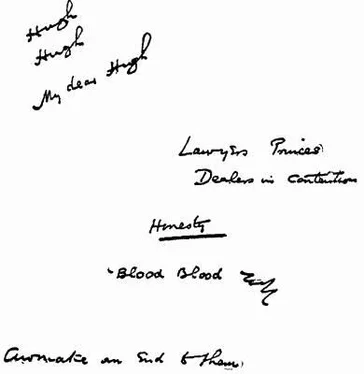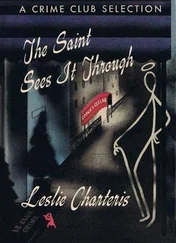Herbert Wells - Mr. Britling Sees It Through
Здесь есть возможность читать онлайн «Herbert Wells - Mr. Britling Sees It Through» весь текст электронной книги совершенно бесплатно (целиком полную версию без сокращений). В некоторых случаях можно слушать аудио, скачать через торрент в формате fb2 и присутствует краткое содержание. Жанр: Классическая проза, на английском языке. Описание произведения, (предисловие) а так же отзывы посетителей доступны на портале библиотеки ЛибКат.
- Название:Mr. Britling Sees It Through
- Автор:
- Жанр:
- Год:неизвестен
- ISBN:нет данных
- Рейтинг книги:4 / 5. Голосов: 1
-
Избранное:Добавить в избранное
- Отзывы:
-
Ваша оценка:
- 80
- 1
- 2
- 3
- 4
- 5
Mr. Britling Sees It Through: краткое содержание, описание и аннотация
Предлагаем к чтению аннотацию, описание, краткое содержание или предисловие (зависит от того, что написал сам автор книги «Mr. Britling Sees It Through»). Если вы не нашли необходимую информацию о книге — напишите в комментариях, мы постараемся отыскать её.
Mr. Britling Sees It Through — читать онлайн бесплатно полную книгу (весь текст) целиком
Ниже представлен текст книги, разбитый по страницам. Система сохранения места последней прочитанной страницы, позволяет с удобством читать онлайн бесплатно книгу «Mr. Britling Sees It Through», без необходимости каждый раз заново искать на чём Вы остановились. Поставьте закладку, и сможете в любой момент перейти на страницу, на которой закончили чтение.
Интервал:
Закладка:
The dinner that night at the Dower House marked a distinct fresh step in the approach of the Great War to the old habits and securities of Matching's Easy. The war had indeed filled every one's mind to the exclusion of all other topics since its very beginning; it had carried off Herr Heinrich to Germany, Teddy to London, and Hugh to Colchester, it had put a special brassard round Mr. Britling's arm and carried him out into the night, given Mrs. Britling several certificates, and interrupted the frequent visits and gossip of Mr. Lawrence Carmine; but so far it had not established a direct contact between the life of Matching's Easy and the grim business of shot, shell, and bayonet at the front. But now here was the Dower House accomplishing wonderful idioms in Anglo-French, and an animated guest telling them—sometimes one understood clearly and sometimes the meaning was clouded—of men blown to pieces under his eyes, of fragments of human beings lying about in the streets; there was trouble over the expression omoplate d'une femme , until one of the youngsters got the dictionary and found out it was the shoulder-blade of a woman; of pools of blood—everywhere—and of flight in the darkness.
Mr. Van der Pant had been in charge of the dynamos at the Antwerp Power Station, he had been keeping the electrified wires in the entanglements "alive," and he had stuck to his post until the German high explosives had shattered his wires and rendered his dynamos useless. He gave vivid little pictures of the noises of the bombardment, of the dead lying casually in the open spaces, of the failure of the German guns to hit the bridge of boats across which the bulk of the defenders and refugees escaped. He produced a little tourist's map of the city of Antwerp, and dotted at it with a pencil-case. "The—what do you call?— obus , ah, shells! fell, so and so and so." Across here he had fled on his bécane , and along here and here. He had carried off his rifle, and hid it with the rifles of various other Belgians between floor and ceiling of a house in Zeebrugge. He had found the pirate steamer in the harbour, its captain resolved to extract the uttermost fare out of every refugee he took to London. When they were all aboard and started they found there was no food except the hard ration biscuits of some Belgian soldiers. They had portioned this out like shipwrecked people on a raft.... The mer had been calme ; thank Heaven! All night they had been pumping. He had helped with the pumps. But Mr. Van der Pant hoped still to get a reckoning with the captain of that ship.
Mr. Van der Pant had had shots at various Zeppelins. When the Zeppelins came to Antwerp everybody turned out on the roofs and shot at them. He was contemptuous of Zeppelins. He made derisive gestures to express his opinion of them. They could do nothing unless they came low, and if they came low you could hit them. One which ventured down had been riddled; it had had to drop all its bombs—luckily they fell in an open field—in order to make its lame escape. It was all nonsense to say, as the English papers did, that they took part in the final bombardment. Not a Zeppelin.... So he talked, and the Britling family listened and understood as much as they could, and replied and questioned in Anglo-French. Here was a man who but a few days ago had been steering his bicycle in the streets of Antwerp to avoid shell craters, pools of blood, and the torn-off arms and shoulder-blades of women. He had seen houses flaring, set afire by incendiary bombs, and once at a corner he had been knocked off his bicycle by the pouff of a bursting shell.... Not only were these things in the same world with us, they were sitting at our table.
He told one grim story of an invalid woman unable to move, lying in bed in her appartement , and of how her husband went out on the balcony to look at the Zeppelin. There was a great noise of shooting. Ever and again he would put his head back into the room and tell her things, and then after a time he was silent and looked in no more. She called to him, and called again. Becoming frightened, she raised herself by a great effort and peered through the glass. At first she was too puzzled to understand what had happened. He was hanging over the front of the balcony, with his head twisted oddly. Twisted and shattered. He had been killed by shrapnel fired from the outer fortifications....
These are the things that happen in histories and stories. They do not happen at Matching's Easy....
Mr. Van der Pant did not seem to be angry with the Germans. But he manifestly regarded them as people to be killed. He denounced nothing that they had done; he related. They were just an evil accident that had happened to Belgium and mankind. They had to be destroyed. He gave Mr. Britling an extraordinary persuasion that knives were being sharpened in every cellar in Brussels and Antwerp against the day of inevitable retreat, of a resolution to exterminate the invader that was far too deep to be vindictive.... And the man was most amazingly unconquered. Mr. Britling perceived the label on his habitual dinner wine with a slight embarrassment. "Do you care," he asked, "to drink a German wine? This is Berncasteler from the Moselle." Mr. Van der Pant reflected. "But it is a good wine," he said. "After the peace it will be Belgian.... Yes, if we are to be safe in the future from such a war as this, we must have our boundaries right up to the Rhine."
So he sat and talked, flushed and, as it were, elated by the vividness of all that he had undergone. He had no trace of tragic quality, no hint of subjugation. But for his costume and his trimmed beard and his language he might have been a Dubliner or a Cockney.
He was astonishingly cut off from all his belongings. His house in Antwerp was abandoned to the invader; valuables and cherished objects very skilfully buried in the garden; he had no change of clothing except what the rucksack held. His only footwear were the boots he came in. He could not get on any of the slippers in the house, they were all too small for him, until suddenly Mrs. Britling bethought herself of Herr Heinrich's pair, still left unpacked upstairs. She produced them, and they fitted exactly. It seemed only poetical justice, a foretaste of national compensations, to annex them to Belgium forthwith....
Also it became manifest that Mr. Van der Pant was cut off from all his family. And suddenly he became briskly critical of the English way of doing things. His wife and child had preceded him to England, crossing by Ostend and Folkestone a fortnight ago; her parents had come in August; both groups had been seized upon by improvised British organisations and very thoroughly and completely lost. He had written to the Belgian Embassy and they had referred him to a committee in London, and the committee had begun its services by discovering a Madame Van der Pant hitherto unknown to him at Camberwell, and displaying a certain suspicion and hostility when he said she would not do. There had been some futile telegrams. "What," asked Mr. Van der Pant, "ought one to do?"
Mr. Britling temporised by saying he would "make inquiries," and put Mr. Van der Pant off for two days. Then he decided to go up to London with him and "make inquiries on the spot." Mr. Van der Pant did not discover his family, but Mr. Britling discovered the profound truth of a comment of Herr Heinrich's which he had hitherto considered utterly trivial, but which had nevertheless stuck in his memory. "The English," Herr Heinrich had said, "do not understanding indexing. It is the root of all good organisation."
Finally, Mr. Van der Pant adopted the irregular course of asking every Belgian he met if they had seen any one from his district in Antwerp, if they had heard of the name of "Van der Pant," if they had encountered So-and-so or So-and-so. And by obstinacy and good fortune he really got on to the track of Madame Van der Pant; she had been carried off into Kent, and a day later the Dower House was the scene of a happy reunion. Madame was a slender lady, dressed well and plainly, with a Belgian common sense and a Catholic reserve, and André was like a child of wax, delicate and charming and unsubstantial. It seemed incredible that he could ever grow into anything so buoyant and incessant as his father. The Britling boys had to be warned not to damage him. A sitting-room was handed over to the Belgians for their private use, and for a time the two families settled into the Dower House side by side. Anglo-French became the table language of the household. It hampered Mr. Britling very considerably. And both families set themselves to much unrecorded observation, much unspoken mutual criticism, and the exercise of great patience. It was tiresome for the English to be tied to a language that crippled all spontaneous talk; these linguistic gymnastics were fun to begin with, but soon they became very troublesome; and the Belgians suspected sensibilities in their hosts and a vast unwritten code of etiquette that did not exist; at first they were always waiting, as it were, to be invited or told or included; they seemed always deferentially backing out from intrusions. Moreover, they would not at first reveal what food they liked or what they didn't like, or whether they wanted more or less.... But these difficulties were soon smoothed away, they Anglicised quickly and cleverly. André grew bold and cheerful, and lost his first distrust of his rather older English playmates. Every day at lunch he produced a new, carefully prepared piece of English, though for some time he retained a marked preference for "Good morning, Saire," and "Thank you very mush," over all other locutions, and fell back upon them on all possible and many impossible occasions. And he could do some sleight-of-hand tricks with remarkable skill and humour, and fold paper with quite astonishing results. Meanwhile Mr. Van der Pant sought temporary employment in England, went for long rides upon his bicycle, exchanged views with Mr. Britling upon a variety of subjects, and became a wonderful player of hockey.
Читать дальшеИнтервал:
Закладка:
Похожие книги на «Mr. Britling Sees It Through»
Представляем Вашему вниманию похожие книги на «Mr. Britling Sees It Through» списком для выбора. Мы отобрали схожую по названию и смыслу литературу в надежде предоставить читателям больше вариантов отыскать новые, интересные, ещё непрочитанные произведения.
Обсуждение, отзывы о книге «Mr. Britling Sees It Through» и просто собственные мнения читателей. Оставьте ваши комментарии, напишите, что Вы думаете о произведении, его смысле или главных героях. Укажите что конкретно понравилось, а что нет, и почему Вы так считаете.






